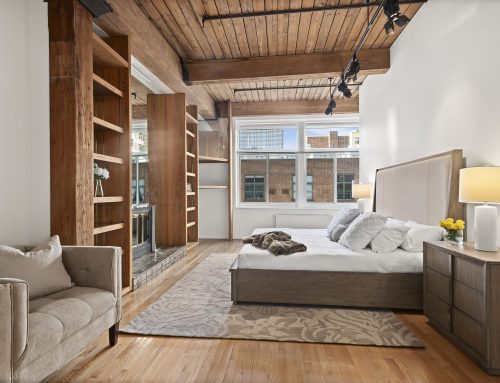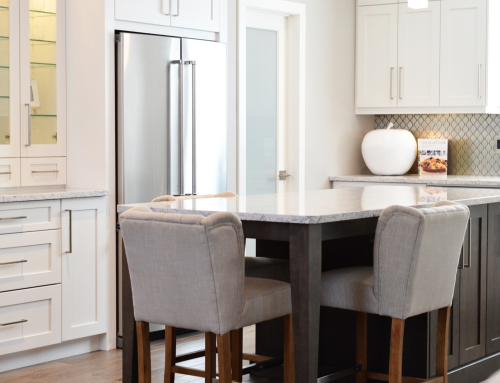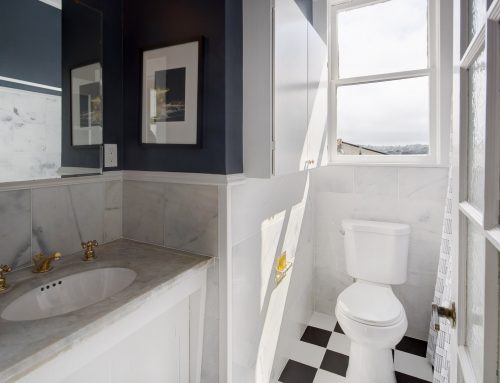The ins and outs of a real estate transaction are undeniably complex. Buying a home is (usually) the largest financial decision one makes in a lifetime, which is why most enlist a qualified real estate agent to help maneuver the deal.
Whether working with an agent or facing the process alone, the buyer maintains final say at each step of the transaction. So, foreseeing all possible home buying blunders is crucial to making informed and favorable decisions. To do so, avoid the following common home buying mistakes:
Waiving contingencies
When a buyer submits an offer, he or she usually includes certain contingencies that must be met prior to closing. Most buyers include home inspection, appraisal and financing provisions in their initial offer to evade financial woes down the road. For instance, you wouldn’t want to pay full price for a home to later find $20,000 in necessary structural repairs. With a home inspection contingency, you could have negotiated that $20,000 off the purchase price or backed out of the deal without losing your escrow (earnest) money. When forgoing a home inspection contingency, you’re basically buying the home in “as-is” condition. Unless you’re buying a bank-owned property priced well below market value, always have your prospective home fully inspected and appraised before committing to the contract. Finally, if you plan on getting a mortgage, the financing contingency states you are only going to buy if and when your lender officially approves your home loan. Unless you have a few hundred thousand in liquid savings to spend in case your lender backs out, this step is a must.
In a seller’s market like Chicago, many first-time buyers think forgoing contingencies provides the competitive advantage needed to win sellers’ hearts. But, there’s a massive monetary risk in overpaying for a home that, unbeknownst to the naked eye, needs a lot of repairs. In a multiple offer scenario, the buyer is better off upping their purchase price or increasing the earnest money while keeping contingencies intact.
Confusing Zestimates with appraisals
When it comes to online real estate and listings traffic, Zillow Group reigns supreme with 166 million average monthly unique users across both Zillow.com and sister site Trulia.com. A key feature that drives traffic to Zillow.com is the company’s proprietary Zestimateâ tool. According to Zillow, a home’s Zestimate is calculated based on public and user-submitted data points that help figure the “estimated market value” of 100 million homes in the U.S.
The Zestimate is, by definition, “a starting point in determining a home’s value and is not an official appraisal.” Contrary to popular belief, Zillow does not hire experts to visit every home in the nation for precise and up-to-date price evaluations. The algorithm uses (sometimes limited) data points, leaving many Zestimates susceptible to errors and inconsistencies. Thus, the Zestimate should only be used as a rough approximation and never in lieu of comparative market analysis from your real estate agent or a professional appraisal amount.
Overlooking the down payment amount
The difficulty of saving for a down payment is one of the primary reasons so many would-be buyers rent instead. Low down payment mortgages are especially attractive to those struggling to save while balancing student loan debt but are not always as ideal as they seem. Since lenders use risk assessments to determine individual loan terms, buyers who put less than 20 percent down are more likely to have a higher interest rate. Essentially, more money from you is less liability for your lender.
Further, putting 5, 10 or 15 percent down on a conventional loan means you’ll owe private mortgage insurance (PMI). On a conventional loan, PMI typically adds around $55 extra per month for every $100,000 financed. This premium is owed until you’ve reached 20 percent in equity or principal. For example, if you were buying a $455,000 home with 10 percent, or $45,500, down, expect to owe $226 in PMI each month. You’ll pay the surplus until you’ve reached $91,000 (20 percent) in principal.
Forgetting closing costs
You might think you’re off the hook once you’ve secured enough cash for your down payment. But, you’ll also need funds to cover your closing costs. The total varies based on location and the property, but expect to spend an additional 2 to 5 percent of the purchase price at closing to cover incidentals such as the loan origination fee, appraisal, attorney fee, title fee, inspection, and insurance. There are two main avenues buyers use to escape closing costs:
- Option A – ask the seller to pay these costs via a credit at closing. This is more feasible if the seller is motivated, your offer is fair and the home has been sitting on the market for more than a few months.
- Option B – increase your total purchase price by the amount you need to be credited back at closing. This also increases your total loan amount and could boost your monthly mortgage payment slightly.
Ignoring HOA fees
In the heart of Chicago, buyers are more likely to purchase condominiums with homeowners’ associations (HOA) over single-family homes. Unfortunately, few buyers realize just how much Chicago condo HOA fees can increase their total monthly housing expenses. Your lender will factor the current HOA bill into your debt-to-income ratio before they approve your home loan, but shelling out an extra $500 per month might be a scenario you want to avoid – even if you can afford it on paper.
Every unit owner in a condo building is obligated to pay a share of their building’s maintenance and operations. HOAs in Chicago often include water, common area cleaning, landscaping, insurance, and possibly a cable package. Amenity upkeep and security are more common in high-rises downtown. A report from Trulia shows that the average monthly HOA bill in the Chicago metro area is $342 per month, up 26.6 percent over the last decade. Generally, older buildings in need of upkeep tend to have higher HOA dues, even if they lack the more luxurious amenities like onsite pools and fitness centers.
Understanding the most common home buying pitfalls is imperative, but no two transactions are exactly alike. To locate the home of your dreams, negotiate the right price and understand all the home buying nuances fully, call Z Chicago at 312-810-2295 today.





